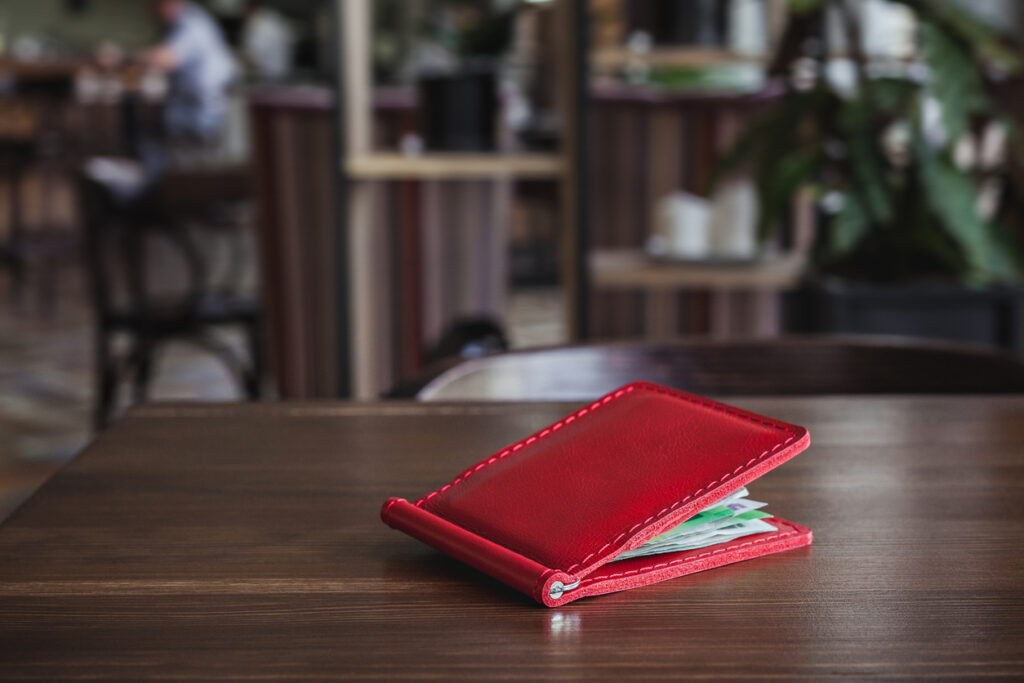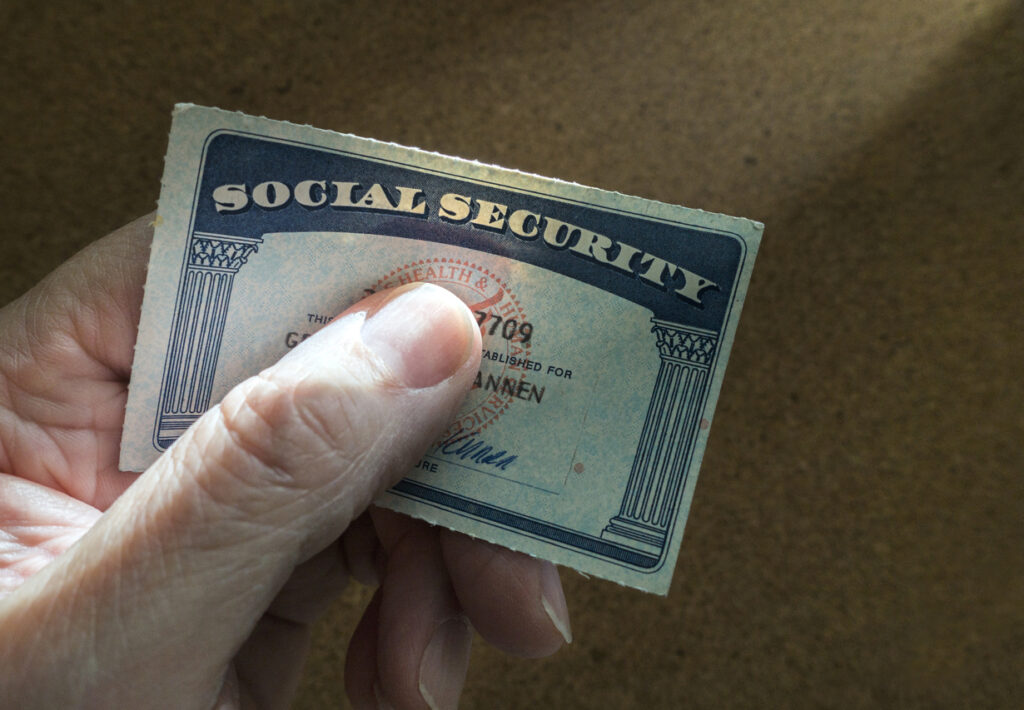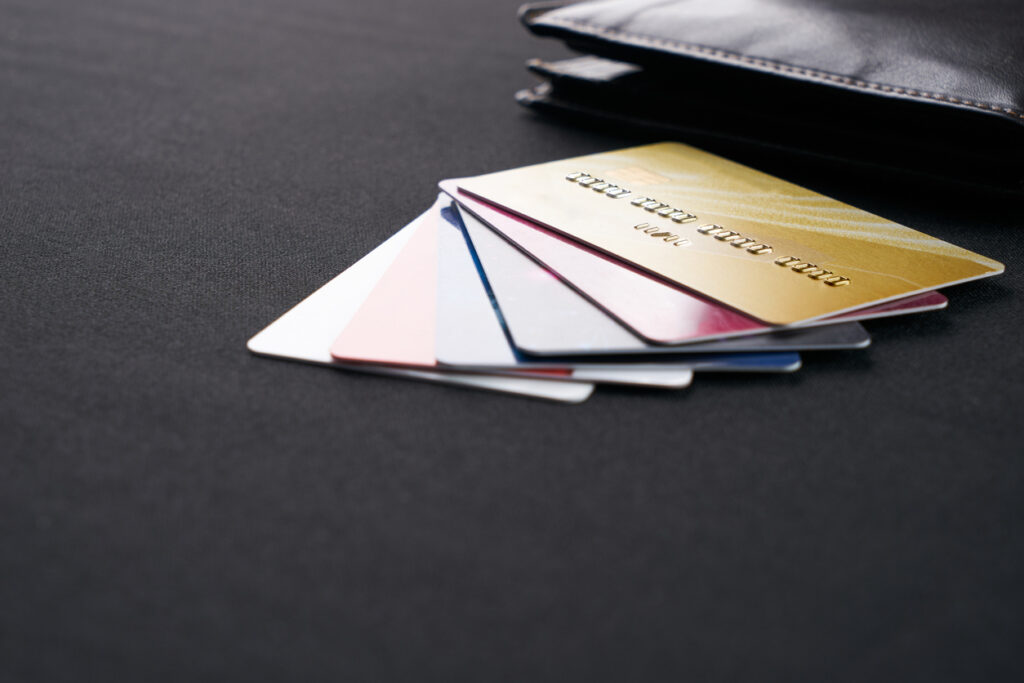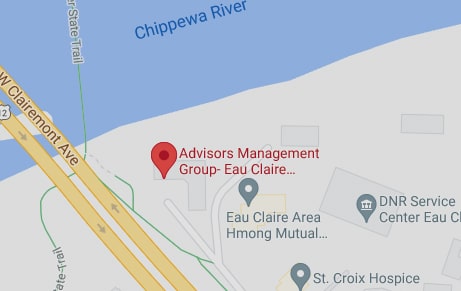Leave these 8 items at home
If we lose our wallet or have it stolen, the cash inside may be the least of our worries.
One survey shows that 62% of people have had their wallets or purses lost or stolen. If you carry all types of identification, documents, and cards, you may learn firsthand about the nightmare of identity theft.
Identity theft is on the rise, increasing by over 67% in just a couple of years. With that in mind, think about what you carry around with you most days. If you don’t really need it that day, it’s better to leave it at home in a fireproof safe than to risk losing it.
Here are eight items you should not keep in your wallet.

1. Social security card
Carrying around a social security card in your wallet is one of the worst offenses – and many of us do it. Once a thief has your social security card, there are unlimited ways they can use your identity to make life more difficult.
In addition to not carrying around your social security card itself, don’t write the number down on a piece of paper that you carry in your wallet. Thieves know what it is.
2. Passport and passport card
Passport
Granted, there are times when there is no way around carrying a passport. If you are traveling to another country, you need to have it with you.
But once you arrive, carry a copy and put your original in the hotel safe. Make sure you are staying in a hotel where the safe is secure.
If you lose your wallet with your passport inside, identity thieves can use it to have a social security card made in your name, to open bank accounts, or even to attempt travel.
Passport card
A passport card is smaller than a passport and fits in your wallet. It can be used as identification for domestic flights and to enter the United States at land border crossings and ports of entry by water from Mexico, Canada, Bermuda, and the Caribbean. It’s often used by people who must cross the border frequently.
If you lose your passport card, identity theft is as much of a risk as it is with passports. If you don’t need it on a particular day, leave it at home in the safe.
3. Excess credit and debit cards
Many of us have multiple credit and debit cards, but usually, we don’t use them all every day. If you lose your wallet or someone steals it, you must immediately contact all those financial institutions and cancel the cards.
Not only is this time-consuming, but it can leave you without any payment methods while yours are replaced.
Better to leave no more than two in your wallet and keep the rest safely at home if you don’t plan to use them. Make photocopies of all your cards and leave them in your safe at home. If the worst happens, you still immediately have the numbers and information you must have to cancel your cards.
4. Password cheat sheet
Even in this age of safe password managers such as LastPass, many people write their passwords down on a password cheat sheet. Only 24% of people use password managers.
If you really feel you need a written password cheat sheet, at the very least keep it in a secure location at home. The last thing you should do is put a copy of it in your wallet.
If a thief gets hold of your wallet, they would have instant access to your financial information, among other sensitive accounts.
Our advice is to get rid of the cheat sheet altogether and start using a reliable password manager. And of course, you want to have many unique passwords rather than using the same one over and over.
5. Extra keys
You may have a habit of keeping an extra home or office key in your wallet “just in case.”
Since you are likely carrying identification that includes addresses, the finder or thief may let themselves into your place and help themselves to your belongings – or worse.
Reduce the risk of burglary by giving your extra key to a trusted friend or family member rather than carrying it in your wallet.
6. Blank checks
Back in the day, everyone carried around a checkbook or a few blank checks in their wallet. If you still use checks, you would be far better off leaving them at home unless you have a specific plan to use one that day.
If a thief gets hold of one of your blank checks, they could conceivably withdraw all the money you have in the account. Even if they are unable to do that, they can still get your bank account information and routing number from a check (and often, your home address!).
7. Gift cards and excess cash
Some people routinely store gift cards in their wallets in case they want to use them when they are out. This is no big deal for $4 off at Starbucks. But should you have gift cards of significant value, keep them at home until you plan to use them. Otherwise, a thief can use the cards as though they were cash.
And speaking of cash, avoid carrying around a big wad of money. If you aren’t going to spend it that day, keep it in the bank or your safe at home.
8. Multiple receipts
Many of us have a habit of jamming receipts into our purses and wallets, leaving them there for months. If you paid with a credit or debit card, a receipt may show the last numbers of your card.
Should these receipts fall into the hands of a professional, they may be able to use those numbers, the name of the vendor, and other information in your wallet to phish for the rest of the card number.
Try to get into the habit of emptying your wallet or purse of receipts at the end of the day. Keep those that are important in a physical safe or secure digital location. Shred the rest.
Call us to discuss more ways to reduce your financial risk
The risks go far beyond what not to carry in your wallet. If you’re concerned with reducing your financial risks, contact a certified financial advisor in LaCrosse to discuss the best ways to secure your future.
Call us at (608) 782-0200 in LaCrosse. Our Eau Claire financial advisors can be reached at (715) 834-9512, and our Green Bay financial advisors are available at (920) 434-2192.
Advisors Management Group, Inc. is a registered investment adviser whose principal office is located in Wisconsin. Opinions expressed are those of AMG and are subject to change, not guaranteed, and should not be considered recommendations to buy or sell any security. Past performance is no guarantee of future returns, and investing involves multiple risks, including, but not limited to, the risk of permanent losses. Please do not send orders via email as they are not binding and cannot be acted upon. Please be advised it remains the responsibility of our clients to inform AMG of any changes in their investment objectives and/or financial situation. This commentary is limited to the dissemination of general information pertaining to AMG’s investment advisory/management services. Any subsequent, direct communication by AMG with a prospective client shall be conducted by a representative that is either registered or qualifies for an exemption or exclusion from registration in the state where the prospective client resides. A copy of our current written disclosure statement discussing our advisory services and fees continues to remain available for your review upon request.





